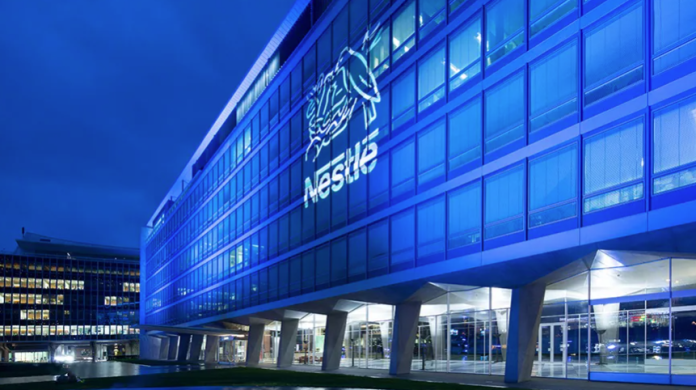Maersk announced that its partnership with Nestlé, the world’s largest food and beverage company, has led the Swiss conglomerate to cut its ocean logistics greenhouse gas (GHG) emissions.
Nestlé has agreed to use Maersk’s ECO Delivery solution for all of its ocean containers shipped by the Danish carrier in 2023, with an option to extend this agreement into the next year and beyond.
The seaborne emissions of these transports are being reduced by over 80% compared to the usage of conventional fossil fuels, according to Maersk’s statement.
Maersk’s ECO Delivery solution secures the use of certified green fuels like second generation biofuel based on waste feedstocks replacing conventional fossil fuels on Maersk’s container vessels. Maersk said the corresponding GHG emission savings are confirmed to its customers with a certificate.
“Reaching net zero requires changing many aspects of how we source, make, and distribute our products. The agreements we’ve signed with Maersk will help reduce emissions and deliver immediate positive impacts on our carbon footprint,” said Stephanie Hart, global head of Operations at Nestlé, whose goal is a 50% reduction of its total emissions by 2030 and to be net zero by 2050.
Nestlé’s water beverages and Nespresso have been two pioneering brands using ECO Delivery since 2021, while today many more of Nestlé’s up to 2,000 brands are reaching the end consumers through Maersk’s ECO Delivery.
Nestlé ranks among the largest ECO Delivery clients by volume. Since 2023, Maersk has seen more leading companies, such as Inditex and Europris, select its ECO Delivery very low emission solution for all their seaborne cargo. On the other hand, ECO Delivery guarantees direct emission savings through the allocation of green fuels, and these transports will be exempted by Maersk from future EU Emissions Trading System (ETS) charges.
Furthermore, Maersk noted that customers benefit from fixed prices for green fuels and announced that ECO Delivery will also become available for airfreight cargo as well as landside transports in certain areas.
Johan Sigsgaard, executive vice president and chief product officer of Ocean at A.P. Moller – Maersk, commented, “Having green fuel solutions like ECO Delivery at hand, it still takes such impressive commitments of our customers like Nestlé to make the decarbonisation of our shipping and landside logistics actually happen. This is why we are grateful for the positive feedback we get from customers like Nestlé that are buying ECO Delivery for all their ocean cargo.”
Furthermore, the world’s largest food & beverage company is one of Maersk’s partners in also piloting low GHG emission landside transports, e.g. by rail or electric trucks.







